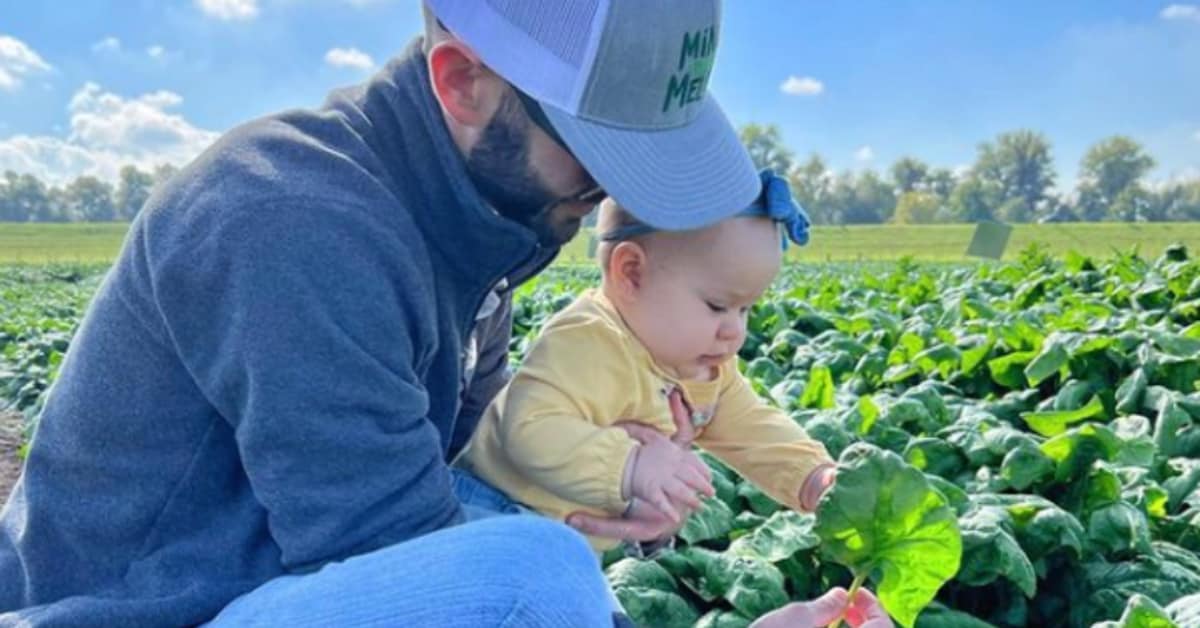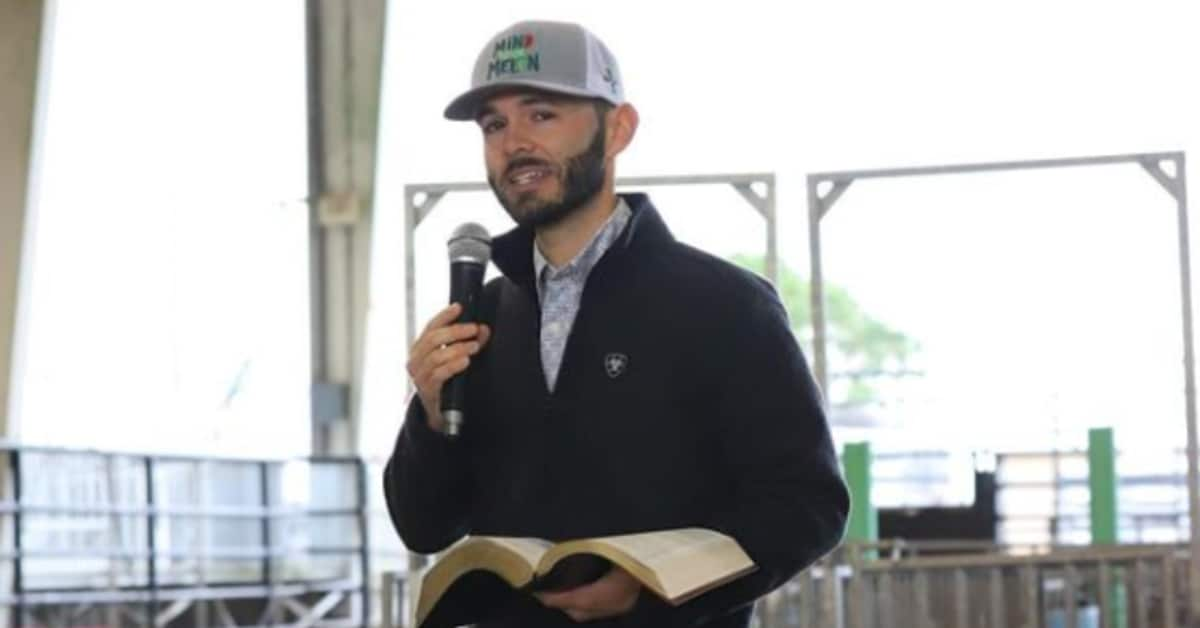Meet the Farmer Bringing Mental Health to the Table

- This Is Bayer
- Agriculture
- Consumer Health
- Pharmaceuticals
- Products
- Community
- News & Stories
- Careers
- This Is Bayer
- Agriculture
- Consumer Health
- Pharmaceuticals
- Products
- Community
- News & Stories
- Careers
From crop failures to chaotic schedules, farmers deal with personal stress on a daily basis — often without much support. Marshal Sewell believes it’s time for that to change.
The issue of agricultural stress is very much real and, sadly, affects farmers from around the world. Crop failures can shatter rural communities and cut off income for multigenerational families, leaving them to pick up the pieces. This cycle of uncertainty makes mental health so important in the industry.
Just ask Marshal Sewell, founder of Mind Your Melon. His organization prioritizes the wellbeing of farmers by offering guides to overcoming adversity and building a healthy lifestyle. From nutritional and fitness tips to community resources, he encourages people to make proactive choices to cope with the daily stresses of agriculture.
As we recognize Men’s Health Month, we know that mental health among men often goes untreated because they are less likely to seek mental health treatment than women. So we spoke to Sewell to learn more about his personal journey with mental health, Mind Your Melon’s inspirational work, and the positive future he sees for the farming industry.
What inspired you to create Mind Your Melon?
The primary catalyst for Mind Your Melon goes back to the loss of my dad. When I was in high school, my family experienced a crop failure on our own farm and, during this event, my dad decided to end his own life. In the years since losing my father, I’ve personally been working to better understand psychology and mental health. Within agriculture, specifically, it is a nuanced subject that plays a huge role in our industry members. My goal has been to raise awareness around the subject in the hopes of helping other farm and ranch families experiencing similar stressors in their lives and operations.

What is the main challenge for farmers when it comes to mental health?
The very first part of the mental health equation is being willing to accept that your day-to-day normal isn’t quite normal. Then you must act on it. The traditional, conservative mindset of most producers in our industry is to avoid this line of thinking, which creates a major hurdle in the initial process.
Farmers and ranchers have given a host of reasons as to why they might avoid the topic. They are independent and don’t want or need help. But, if they did, they don’t have time to seek out help. And were they to consider it, they wouldn’t want to burden someone else with their personal issues. There are layers to the stigma and rationale keeping a farmer from acknowledging their mental health. We are trying to scratch through, little by little, to share the reality of the issue.

How can prioritizing mental health transform rural communities?
While the presence of stressors will remain, properly equipping individuals to manage them practically and proactively can lead to greater total utility and, ideally, lower levels of suicide risk. Beyond personal wellbeing, this would also help to reduce fragility in an agricultural supply chain that is already riddled with shocks and uncontrollable factors. Helping producers and their businesses to remain healthy would, in theory, be advantageous to a sustainable supply of food and natural resources.
What steps can farmers take to begin working on their wellness?
Agricultural mental health is far from a cookie cutter template. Going for a run might be beneficial to one person while a revised business plan might be effective for another. From my perspective, a great start would be to identify at least one person you would feel comfortable talking to regarding the topic, professional or not. Beyond that, begin cataloging some of your sources of stress and, from there, you can develop a plan for addressing those items.
A specific tactic I take seriously is carving out personal time for myself in the morning, even if it means setting an earlier alarm. I treat this small window as an opportunity for things like reading, praying, exercising, breakfast, and coffee. Beginning with these things helps me feel as if I am setting the right tone for the rest of the day to come.

What are some recent strides being made to change things?
The USDA has helped provide grant funding for the development of resources and outreach. Universities across the country are conducting research to better understand the issues. American Farm Bureau is even continuing to operate the Farm State of Mind campaign that was gifted to them by Bayer years ago. These organizations are helping to provide resources and base level education on the subject.
Being a global leader in both human health and agriculture, Bayer has a unique opportunity to participate in this space. Developing a unified and appropriate global message would be valuable in communicating the importance and impact of the topic to growers, key stakeholders, and supporting organizations around the world.
As we recognize Men’s Health Month, highlighting Marshal’s “Mind Your Melons” initiative is just one of the many ways Bayer is helping to bring greater awareness and education to combat the underlying fears and anxieties that can get in the way of men getting the care they need.